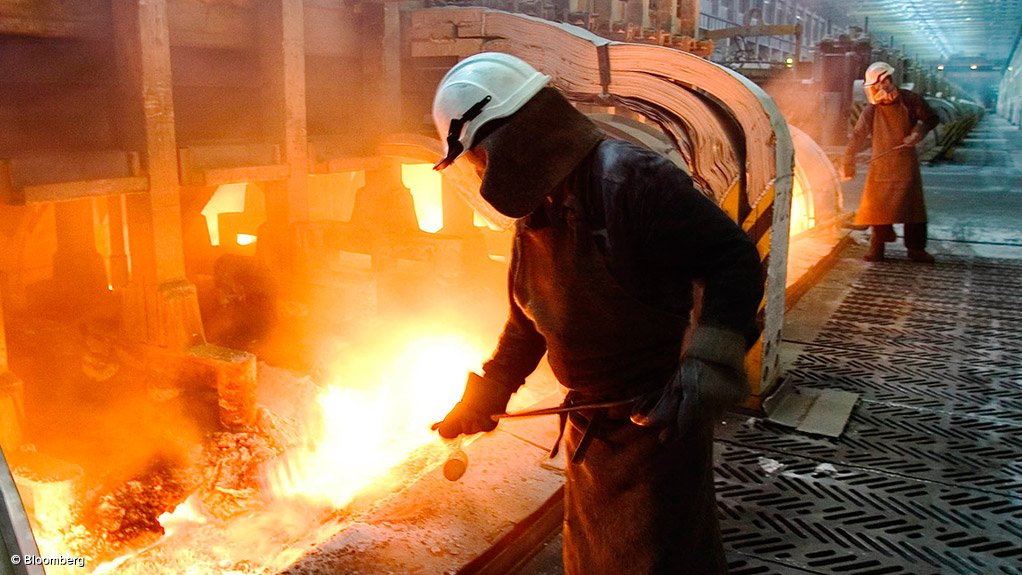
Photo by: Bloomberg
PERTH (miningweekly.com) – Gladstone’s Boyne smelters, which are 59% held by mining major Rio Tinto, have announced production cuts and redundancies, blaming “unsustainably” high power prices.
Boyne is currently Australia’s largest aluminium smelter, producing 570 000 t/y.
The company said on Thursday that in response to elevated electricity prices in Queensland, it was in the process of reducing production by about 8% by progressively dropping up to 80 MW of power from its production circuit.
About 85% of Boyne’s electricity requirements are provided by a long-term contract with the Gladstone power station. The remaining 15% is currently supplied through the spot market.
The company stated that prices were almost three times higher than the 2016 average, and that it was unable to maintain full production at the elevated electricity rates.
“As a result, the decision to activate a carefully managed curtailment has become necessary,” the company said.
This curtailment could result in a potential loss of about 45 000 t of aluminium production for 2017.
“This is the second time in three years we’ve had to curtail production on a large scale because of uncompetitive electricity prices. Boyne is paying more than 500 times more than what it costs to generate electricity,” Boyne GM Joe Rea said.
“The decision to curtail production is a very difficult one. It takes months, not weeks, to bring the smelter back to a stable full capacity, and that can only happen if and when power prices become competitive.
“Boyne has been unable to secure an internationally competitive price for our additional load. We are not prepared to lock into a contractual arrangement that would have us paying delivered energy prices comparable to the least competitive countries in the world outside of China.”
Although Rea said that the company intended leaving “no stone unturned” to protect jobs, the curtailment of production meant that Boyne could no longer sustain its workforce numbers.
“We’ll know the extent of that impact in the coming weeks,” he said.
The operation employs about 1 000 people and indirectly supports about 6 700 jobs nationally, with 3 000 of these jobs in the Gladstone region.